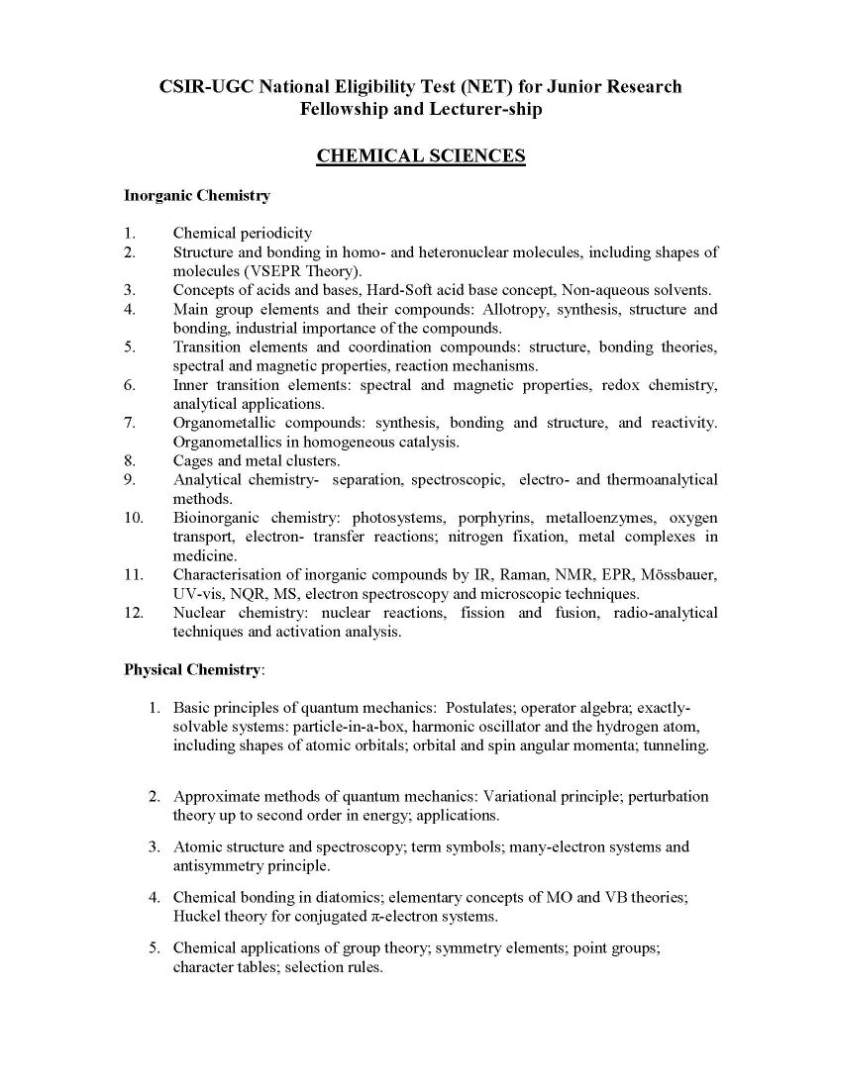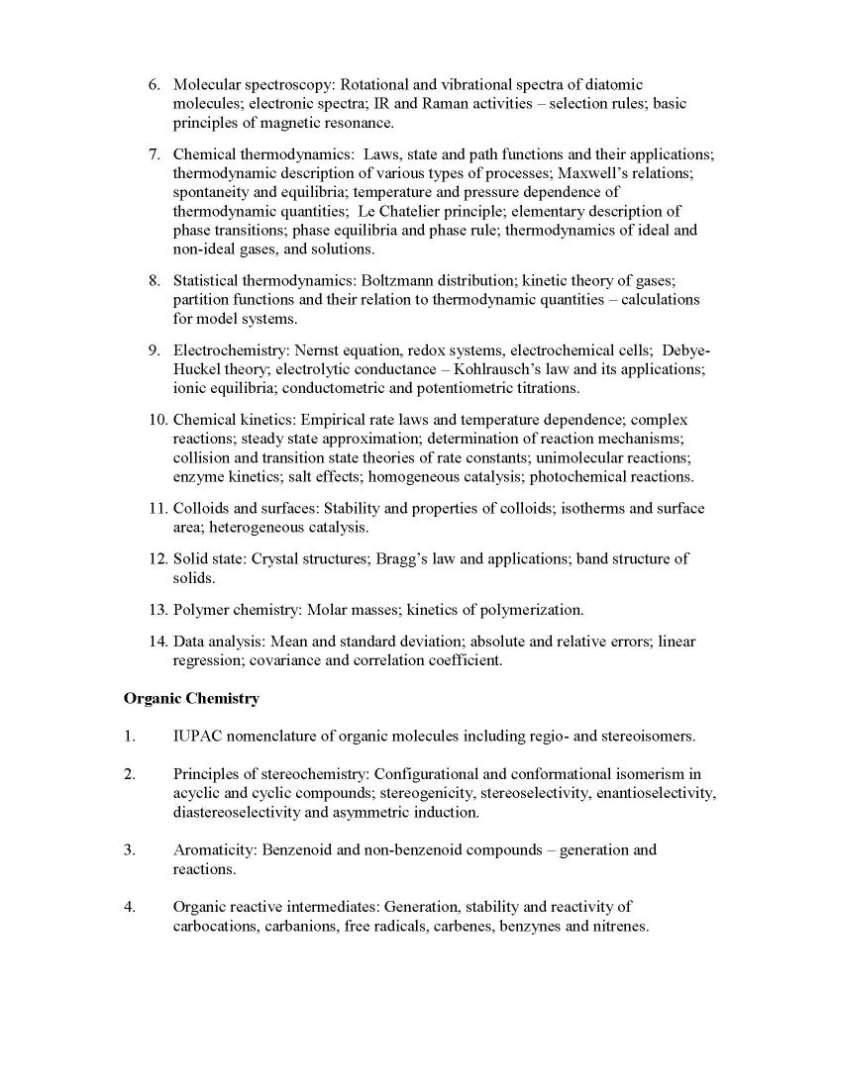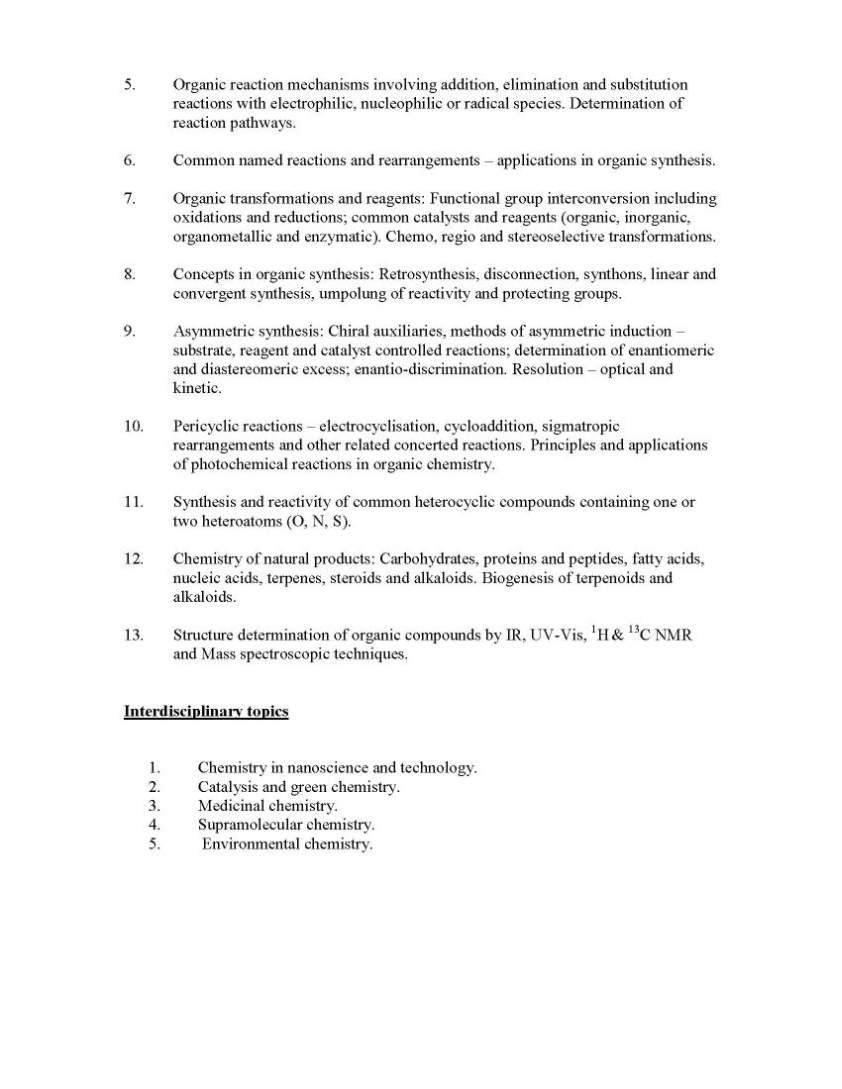|
#2
19th August 2014, 08:31 AM
| |||
| |||
| Re: University Grants Commission CSIR NET reference books for Chemistry
As you want to get the list of some of the best University Grants Commission CSIR NET reference books for Chemistry so here it is for you: Inorganic Chemistry Atomic Structure-Principle of physical chemistry-Puri, Sharma & Pathwa Advance Inorganic Chemistry-J. D. Lee Chemical Periodicity, Chemical bonding, Coordination compound-Maden, Malik, Tuli Theoretical principles of inorganic chemistry-G S Manku Extradiction of metals, Principle of inorganic chemistry-Puri, Sharma, Jauhar. Rest all the chapters-An advance inorganic chemistry-J. D. Lee Pollution and its control-A text book of environmental chemistry and pollution-S S Dara. Physical Chemistry Principals of Physical Chemistry (Gaseous state, Thermodynamics, Phase rule, solutions, Colligative properties, Electro Chemistry, Catalysis, Colloids) -Puri, Sharma & Pathawa Chemical kinetics-Advance physical chemistry-Gurdeep Raj Photo chemistry-A text book of physical chemistry (Vol. IV) -K. L. Kapoor Advance physical chemistry-Gurdeep Raj Organic Chemistry Bonding and shape of organic molecules, Stereo chemistry of carbon compound-Reactions and reagents-O P Agarwal A guide to mechanism in organic chemistry-Peter Sykes Rest all the chapters-A text book of organic chemistry-Bahl & Bahl Some content of the file has been given here: Inorganic Chemistry 1. Chemical periodicity 2. Structure and bonding in homo- and heteronuclear molecules, including shapes of molecules (VSEPR Theory). 3. Concepts of acids and bases, Hard-Soft acid base concept, Non-aqueous solvents. 4. Main group elements and their compounds: Allotropy, synthesis, structure and bonding, industrial importance of the compounds. 5. Transition elements and coordination compounds: structure, bonding theories, spectral and magnetic properties, reaction mechanisms. 6. Inner transition elements: spectral and magnetic properties, redox chemistry, analytical applications. 7. Organometallic compounds: synthesis, bonding and structure, and reactivity. Organometallics in homogeneous catalysis. 8. Cages and metal clusters. 9. Analytical chemistry- separation, spectroscopic, electro- and thermoanalytical methods. 10. Bioinorganic chemistry: photosystems, porphyrins, metalloenzymes, oxygen transport, electron- transfer reactions; nitrogen fixation, metal complexes in medicine. 11. Characterisation of inorganic compounds by IR, Raman, NMR, EPR, Mössbauer, UV-vis, NQR, MS, electron spectroscopy and microscopic techniques. 12. Nuclear chemistry: nuclear reactions, fission and fusion, radio-analytical techniques and activation analysis. Physical Chemistry: 1. Basic principles of quantum mechanics: Postulates; operator algebra; exactly- solvable systems: particle-in-a-box, harmonic oscillator and the hydrogen atom, including shapes of atomic orbitals; orbital and spin angular momenta; tunneling. 2. Approximate methods of quantum mechanics: Variational principle; perturbation theory up to second order in energy; applications. 3. Atomic structure and spectroscopy; term symbols; many-electron systems and antisymmetry principle. 4. Chemical bonding in diatomics; elementary concepts of MO and VB theories; Huckel theory for conjugated π-electron systems. 5. Chemical applications of group theory; symmetry elements; point groups; character tables; selection rules.    |
